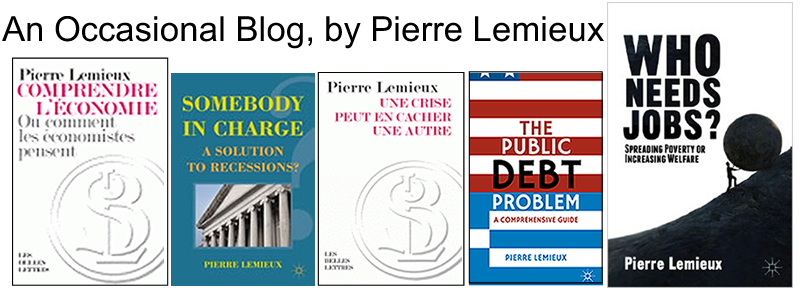My column on the US election published on February 28 in La Tribune (Paris)
La montée de Rick Santorum imprime un autre retournement à la campagne pour l’investiture républicaine. Nous serons mieux placés, après les primaires d’aujourd’hui (le mardi 28 février) dans le Michigan et l’Arizona, pour déterminer si l’ancien sénateur représente un défi majeur pour Mitt Romney, même si des sondages récents suggèrent qu’il l’emporte maintenant au niveau national.
Cette lutte nous rappelle quelques vérités sur la nature des processus politiques. Prenez le débat concernant l’établissement, sous le président républicain George W. Bush, de conditions de qualité de l’enseignement public pour que les États continuent de recevoir des subventions fédérales à ce chapitre. Dans un pays où l’autonomie et la démocratie locales représentent des valeurs historiques, l’opposition à l’intervention du gouvernement fédéral dans l’enseignement public, qui est ordonné localement selon les lois de chaque État, soulève des passions bien compréhensibles. « Il faut, disait si bien Montesquieu, que, par la disposition des choses, le pouvoir arrête le pouvoir. »
Or, M. Santorum avait voté pour l’intervention fédérale en question. À M. Romney qui le lui reprochait, il a déclaré que la loi violait ses principes mais que, « quand on fait partie d’une équipe, on doit parfois encaisser un coup pour elle ». Pour la même raison, M. Santorum n’a pas manifesté d’opposition aux subventions fédérales au planning familial, qu’il dit pourtant condamner pour des raisons morales.
M. Santorum s’est ainsi adonné à ce que tous les politiciens pratiquent et que les économistes des choix publics appellent « marchandage politique », « commerce des bestiaux » (horse trading) ou « échange des votes ». Le politicien vend son appui à cer-taines propositions de ses collèges en retour ce quoi ceux-ci appuieront ses propres projets. Les politiciens font commerce de leurs voix : « Je vous donne mon vote aujourd’hui, vous me donnez le vôtre demain. »
M. Romney a péché de la même manière quand il était gouverneur du Massachusetts, avalisant des mesures « non conservatrices » afin d’en faire adopter d’autres auxquelles il attachait une grande importance.
On peut démontrer que ce marchandage politique mène souvent à l’adoption de politiques dont les avantages sont bien inférieurs aux coûts, lesquels sont dissimulés par leur répartition sur un grand nombre d’individus. Quand on fait la somme des politiques adoptées, on s’aperçoit que personne n’aurait voté pour le panier complet. En d’autres termes, la concurrence politique n’a pas l’efficacité de la concurrence économique. C’est une banalité qu’il faut parfois rappeler.
Ni M. Romney, ni M. Santorum, ni du reste M. Gingrich ne s’en inquiètent, car le seul objectif de chacun est d’être élu. Un rapport d’un think tank indépendant estime que le programme de l’un ou l’autre de ces trois candidats creuserait le déficit budgétaire. Ron Paul, quant à lui, sait qu’il ne sera pas élu, ce qui lui permet de ne pas trop jouer à ces jeux politiciens dangereux.
